Mozambique: President Chapo pays working visit to Sofala
Mozambique: “These were the worst elections ever,” says Araújo

Image: DW
The mayor of Quelimane and head of the Renamo list there, Manuel de Araújo, on Thursday told DW about his arrest in the early hours of the day, and said that the local elections in Mozambique were the worst ever: “It felt like a war.”
The Technical Secretariat for Electoral Administration (STAE) confirmed on Thursday that it had not yet received any results from the local elections in the 65 municipalities, but the Mozambican National Resistance (Renamo) has already announced victory in four of them: Maputo, Matola, Nampula and Quelimane.
In an interview with DW Africa, the mayor of Quelimane and head of the Renamo list there, Manuel de Araújo, denounces several irregularities in the process, including the stuffing of ballot boxes and the mobilization of troops and tanks in the city. He also talks about his arrest, in the early hours of this Thursday (12-10).
READ: Mozambique Elections: Frelimo wins in Quelimane with 50.45% of the vote – Watch
The Police of the Republic of Mozambique (PRM) alleged that the mayor was “disturbing” the polling stations, and they therefore took him to a police station “for screening purposes”. To DW, Manuel de Araújo says that the “only explanation” he finds for this episode is that “Mozambique is returning to the times of the single party and dictatorship”.
DW Africa: Were these free, fair and transparent elections?
Manuel de Araújo (MA): Only someone stupid could answer in the affirmative. I think these were the worst elections ever. I have already participated in around 10 elections, but these – I tell you honestly – were the worst elections, the most violent ever. This felt like a war. There were armoured vehicles and hooded men in the streets.
The strategy that Frelimo adopted was the following: where the Renamo party was winning, the presidents of the polling stations should not sign the minutes, so that there would be no evidence and they could announce Frelimo’s victory.
DW Africa: Why were these the “worst elections” and the “most violent”?
MA: I have information from a reliable police source that around 4,000 soldiers were mobilised to the city of Quelimane. There were tanks like I never saw, and I even asked: “If we have so many soldiers and so much weaponry, why don’t they go to Cabo Delgado to fight terrorism? What are they doing in an election environment?”
And they beat many people, threw tear gas into more than 15 schools…
DW Africa: Did you also find signs of other illegal acts?
MA: We have proof. This was proven in court. The provincial secretary of the Mozambican Women’s Organization (OMM), the women’s wing of the FRELIMO party, was caught with 15 already marked ballot papers, which she intended to put in the ballot box. Our young people, who were prepared for this, identified her, neutralized her and our legal office prosecuted her. We took the case to the Attorney General’s Office and just Wednesday evening, she was tried and convicted.
The district secretary of the Mozambican Youth Organization (OJM), the youth wing of the FRELIMO party, in the city of Quelimane, was also caught. He was tried this morning and sentenced to six months in prison. He is currently in jail. A third young man was also sentenced to six months [in prison] for attempting to stuff ballot boxes.
These are not assumptions. These are facts proven in court. I witnessed all three trials. There was ballot box stuffing at every table.
DW Africa: You were detained today (Thursday) and later released. How do you explain what happened?
MA: The only explanation I can find is that Mozambique is returning to the times of the one- party rule and dictatorship. The commander of the [police’s] Rapid Intervention Unit arrived at the place where I was [talking] to a squad of around 10 PRM agents about how they had spent the day. They themselves had some doubts about the electoral process – as the president of a voting table refused to sign a minute, and they had already been waiting for several hours, they wanted to know if, as police officers, they could allow the ballot boxes to be taken to the Technical Secretariat of the Electoral Administration (STAE). I explained to them that, no. It was at that time that the commander of the Rapid Intervention Unit arrived and asked his colleagues if they didn’t have work to do. He asked them if their job was to talk to me. I was stunned, I didn’t understand what was going on.
DW Africa: Was that when you were arrested?
MA: He gave an order [to the police officers who were with me] to disperse, and they obeyed. Then, he ordered 12 agents – who had their faces covered – to surround me. They grabbed me, threw me into the back of the vehicle, like I was a bag. I didn’t know where I was going, nor why they were detaining me. [At the police station], the provincial public prosecutor arrived and I explained to him what had happened. He told me he saw no reason for me to stay there. I was not given any explanation, but they released me.
Meanwhile, a group of people – more than four or five thousand of the city’s residents – found out about my arrest and went towards the police station. It was at that point that they released me. I went to them and we walked through the city to celebrate my victory and my freedom. But yesterday was also Teacher’s Day and my birthday. There were many things to celebrate.



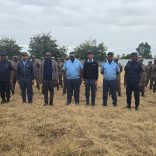
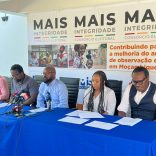
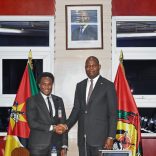
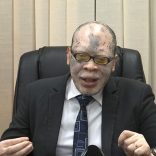
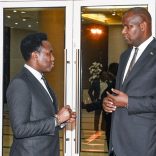




Leave a Reply
Be the First to Comment!
You must be logged in to post a comment.
You must be logged in to post a comment.